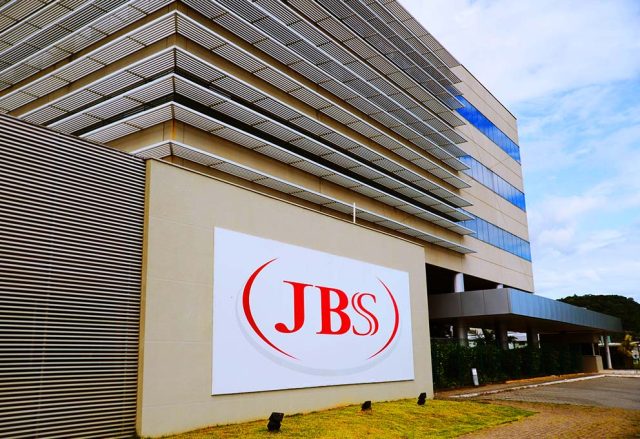WALK
As a result, the agri-food company now has 4% of its workforce made up of people of other nationalities.
One of the largest food companies in the world, JBS has just passed 6,800 immigrants working in its offices and production units in Brazil.
Thus, the company now has 4% of its workforce made up of people of other nationalities.
JBS is now one of the largest employers in the country: there are more than 145,000 employees in the more than 130 municipalities in which the company is present.
For Fernando Meller, Executive Director of People and Management at JBSthe company believes that its success is based on the collective skills and experiences of its employees, which is why it values and encourages the diversity of origins, languages and cultures of its teams.
The executive also comments that this incentive to build a team of diverse teams was one of the reasons that led the company to participate in Projeto Acolhida, a federal government initiative to support immigrants arriving in Brazil.
JBS maintains a permanent recruitment and selection center in Boa Vista (RR), in addition to partnerships with several NGOs that help, for example, these employees to develop the skills necessary for the activity of the company.
Care is also taken to adapt the families of new hires, to accommodation and access to language training if necessary.
Photo: Disclosure/JBS
Differentiated Integration Design
With the aim of making the work environment inclusive of immigrants joining the company, JBS has developed a differentiated onboarding system in which employees have access to company information in multiple languages and dialects, including information on benefits, safety guidelines and training materials.
Each business unit also offers access to Language Lines, a database with more than 200 languages for clear communication at workstations. Professionals from other countries have access to the same benefits granted to all other employees.
Meller points out that the integration system developed by JBS was fundamental in the Acolhida project, because immigrants had to integrate without yet mastering the language.
“In this case, in addition to the support initiatives already offered to all immigrants who join our teams, due to the atypical situation they were experiencing, with the sudden departure from their country, we have also set up a project of ‘sponsorship’, in which the old collaborators help the new ones to integrate into their work”, underlines the executive.
“We have several employees who joined the Acolhida project, rebuilt their lives and made a career at JBS, in particular by recommending the company to other immigrants,” he concludes.
knowledge exchange
The executive director of People and Management reports that the company also has a project called “JBS without borders”, which aims to take employees from Brazil to work in the company’s operations abroad, allowing the exchange of knowledge and experiences in different units of the country. .world.
In this year’s edition of the program, 1,500 opportunities were opened, in a variety of production and administrative roles, to work at JBS Australia.
“JBS Sem Fronteiras is a program that, in addition to providing our employees with the opportunity to grow professionally, is another way to reinforce our culture and our strategy of forming teams with diverse experiences in all our units”, says Meller.
JBS, which today serves customers in more than 190 countries around the world, has more than 260,000 employees worldwide, in production units and offices on all continents, in countries such as Brazil, the United States, Canada, the United Kingdom, Australia and China, among others. .
* under the direction of Luis Roberto Toledo
______________
Learn first-hand information about agriculture, farming, economics, and weather forecasts. Follow Canal Rural on Google News.

“Freelance communicator. Hardcore web practitioner. Entrepreneur. Total student. Beer ninja.”







